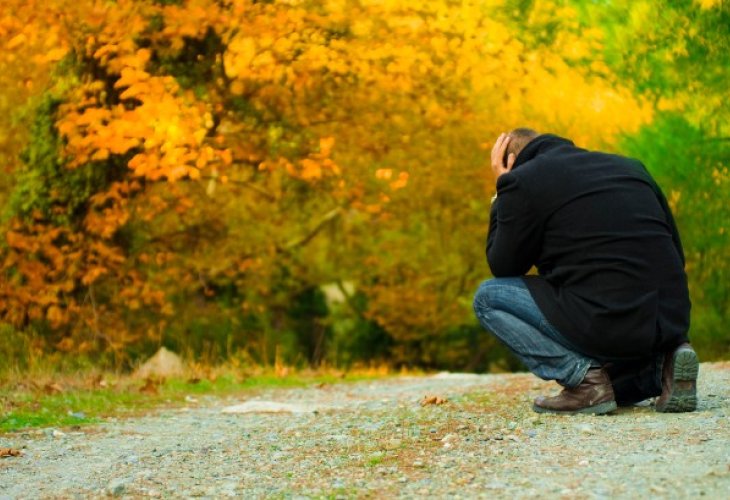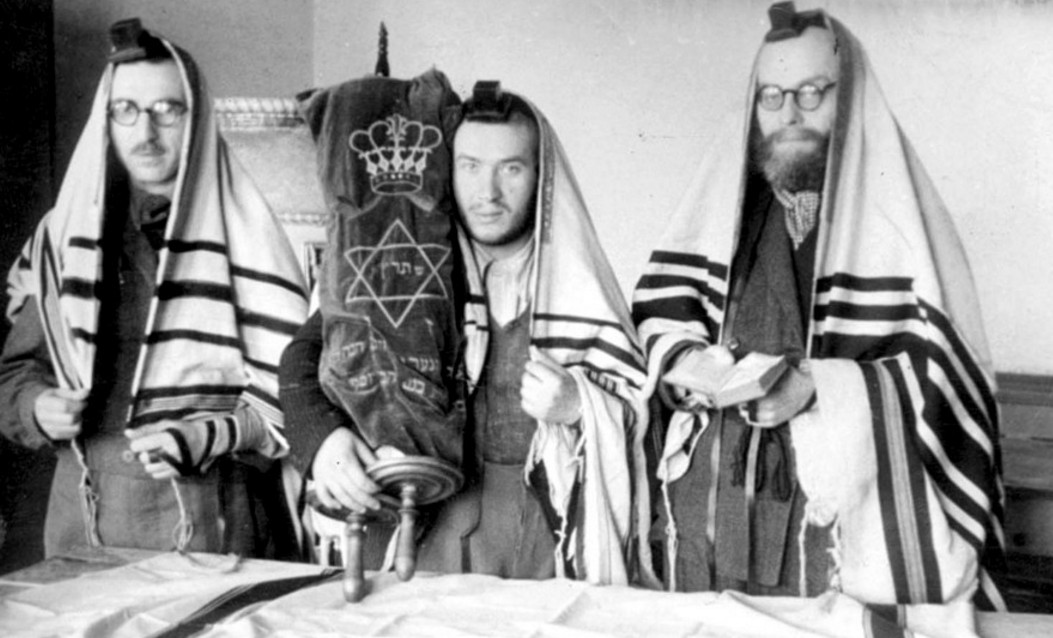The Holocaust
Where Was God During the Holocaust? Jewish Answers to the Hardest Question
Rabbis and thinkers explore faith, suffering, and the meaning of divine presence in the darkest chapter of Jewish history

Many of us have asked the question: “Where was God during the Holocaust?” Countless books and essays have been written on it, and yet we still seek to understand.
Before diving in, it’s worth recalling the powerful speech, “Where Was God? In the Holocaust”, by journalist Sivan Rahav Meir at an alternative Holocaust memorial ceremony. She asked: “Where is God when Maccabi wins? That you can understand? When there’s a victory, He exists, but when there’s a Holocaust, He doesn’t? Couldn’t you also ask: Where is He when a person dies in a car accident? He dies with him. And when a couple, after ten years of waiting, has a baby — then suddenly God exists, He is born with them? Where is He now? (...) Whoever loves God only when life is good, but rejects Him when life is bad, does not serve God — but serves themselves.”
The Broader Question of Suffering
Rabbi Yitzchak Fanger explains that the question “Where was God during the Holocaust?” should really be asked about all suffering in the world, not only about one tragic event. “When a child suffers from a toothache, that too seems like a flaw in God’s creation,” he says. “The question is: Why is there suffering at all — on a micro or macro level? God is perfect. It seems impossible for there to be any flaw in His creation. So when I see suffering, I want to understand why.”
Fanger stresses that approaching this question emotionally — “Why did God take my grandfather in the Holocaust?” — is incorrect. Instead, he urges a rational approach: “If I ask why God allowed the Holocaust, I must also ask why He allowed the Flood that destroyed the world, or the destruction of the First and Second Temples. The Talmud says: ‘There is no suffering without sin.’ That means no suffering happens randomly — neither small pain nor great tragedy. Everything has a purpose, although we don’t always know it. We lack prophets today who can tell us exactly why events happen. But if I know God is perfect and cannot do evil, I can accept that I won’t always understand.”
He compares it to a child who doesn’t understand why a loving parent would take him to the dentist: “At age four, I couldn’t understand why my father caused me pain. Only later did I realize it was out of love. So too, with the Holocaust, we cannot understand why, but we can trust that everything is ultimately for the good. Where was God? Survivors themselves tell stories of miraculous escapes. Many will say: He was there.”

Was the Holocaust a Punishment for Assimilation?
A difficult idea often raised is that the Holocaust was a result of assimilation and drifting away from Judaism. Rabbi Fanger acknowledges this is painful for many: “The Holocaust is a challenging subject, and therefore people resist this explanation. However, looking at history objectively, we see that whenever Jews broke their covenant with God — through assimilation or blurring boundaries, antisemitism rose among the nations. In Germany, emancipation began in 1832, followed by the Enlightenment, then Reform Judaism, and then mass assimilation. The great rabbis warned against these trends, and history unfolded as it did.”
Still, many ask: How could such a horrific punishment possibly be proportionate? Rabbi Fanger answers with a parable: “When I was in the army, our APC hit a landmine. A soldier’s main artery was torn, and doctors had to amputate his leg to save his life. To someone who doesn’t understand medicine, amputation looks cruel, but in reality, it’s the most merciful act. The same is true with the Holocaust — we cannot understand God’s reasoning. These are His calculations, beyond our comprehension. Our task is to accept them as part of our faith.”
Another Link in Jewish Tragedy
Rabbi Yiftach Sofer adds: “Of course the Holocaust cannot be fully understood by human intellect. But that’s okay. With all our limitations, we cannot expect to comprehend God completely. The Holocaust is one link in a long chain of tragedies that have befallen the Jewish people across millennia. We cannot explain it, but we can accept it.”
Faith Beyond Understanding
In the end, the question “Where was God during the Holocaust?” may never have a full human answer. For some, it is a matter of pain, for others a test of faith. Survivors often testify that even in the darkest places, sparks of divine presence were felt through miracles, small or great, that kept them alive. The choice left to us is whether to see the Holocaust as proof of divine absence, or as a call to strengthen faith even when we do not understand.

